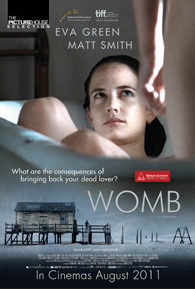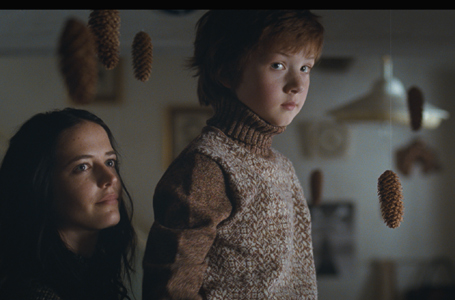
In Womb, Eva Green clones her recently deceased childhood best friend and almost lover, gives birth to him, raises him as her own son, and eventually beds him in what is meant to be an ending whose shock value the script and direction aim to prepare the audience for.
To writer-director Fliegauf, the most important danger issues associated with human cloning are single motherhood, sexual grooming, incest, the Oedipus complex. At times, that makes Womb feel like a feature-length public service announcement on human cloning made by right-wing fundamentalists who happen to be highly competent and artsy filmmakers.
Thankfully, Fliegauf does have some sense of restraint. For most of the film, the balance is heavily in the favour of exploring the mother-child relationship that Eva Green tries to construct with best intentions. It is only in the third act that sporadic hints of sexually-charged possessiveness and confused maternal feelings come to fore, beginning with the young clone (Tristan Christopher) pinning his mother down after some horseplay in the snow.
My complaint would be that aside from this brief instance, there is not much momentum going for the script that would hurtle this film to the conclusion the director has in mind. The build-up to the shocker conclusion may not come across as sustained, consistent, or strong enough – making it more of a twist-out-of-nowhere ending than a shocker ending.
Shot in 2009 before Matt Smith won the nomination to play the Eleventh Doctor in Doctor Who, Womb has far more semi-nude and bottomless shots of Matt Smith than the BBC allowed for this year’s Christopher and His Kind, where he played a young Christopher Isherwood romping across gentlemen’s clubs in Weimar Republic era Berlin.












 列印版本
列印版本










